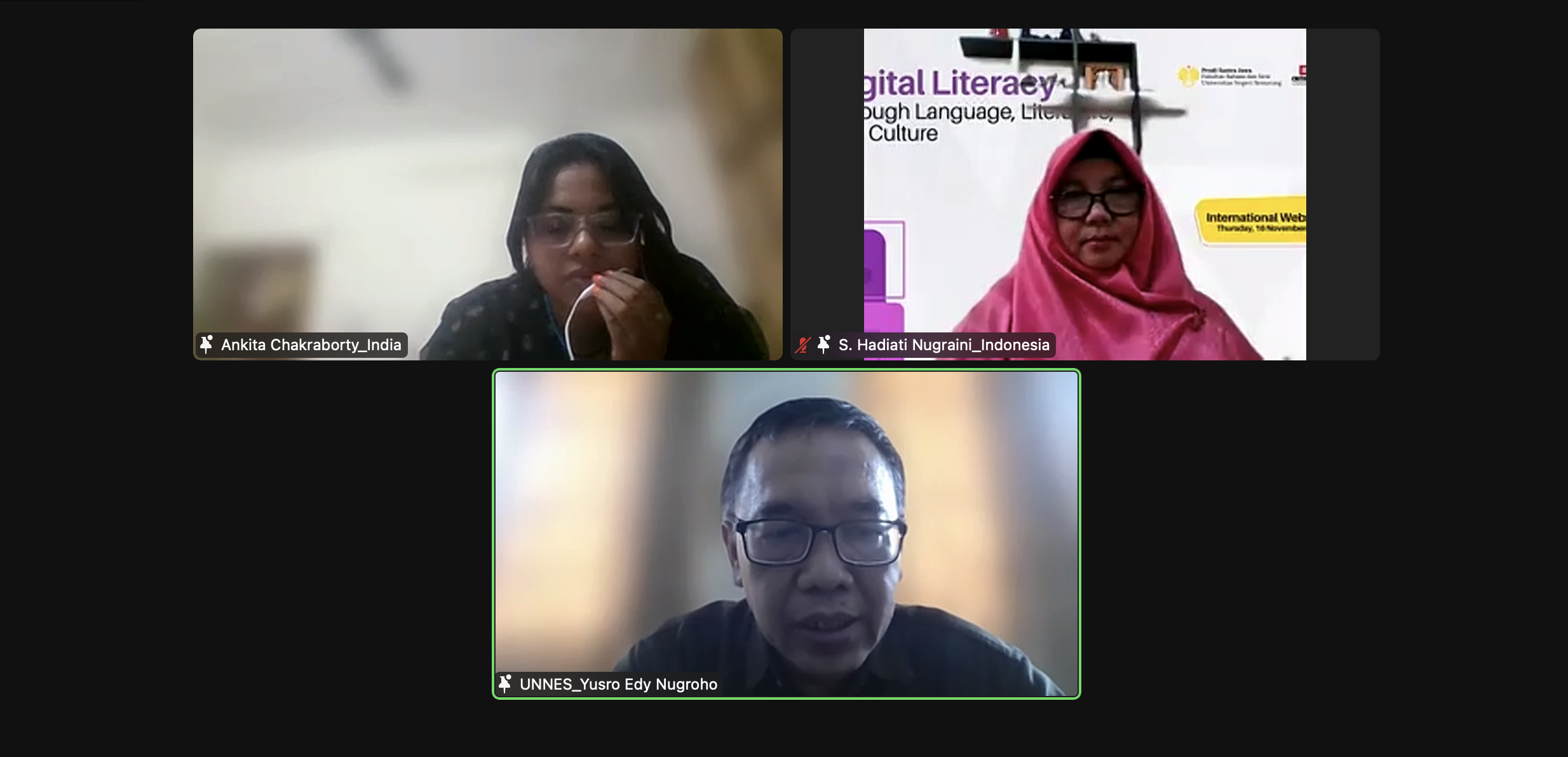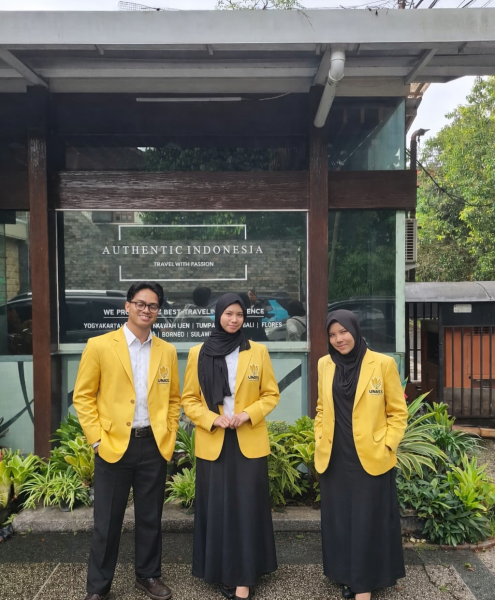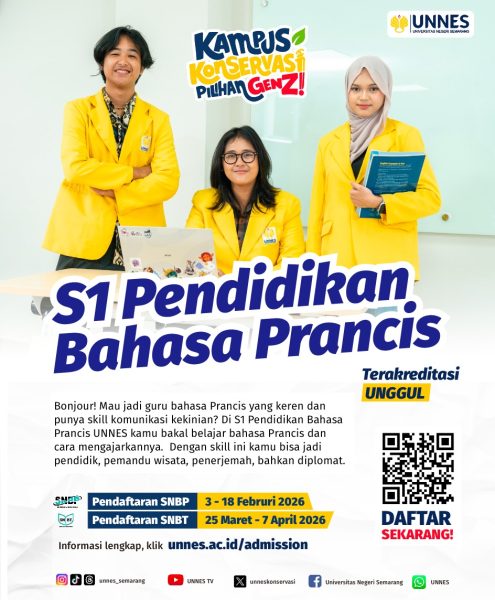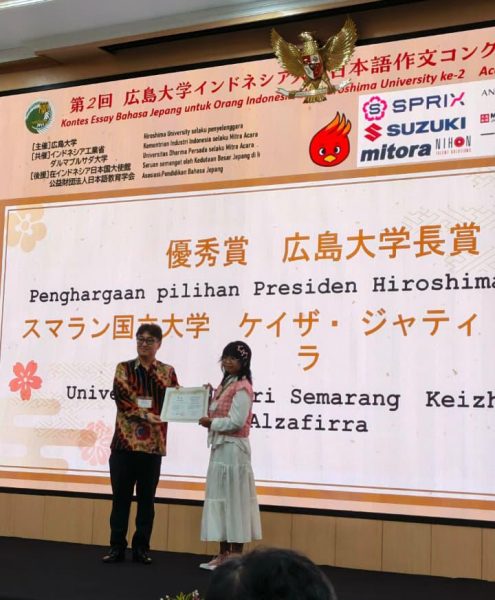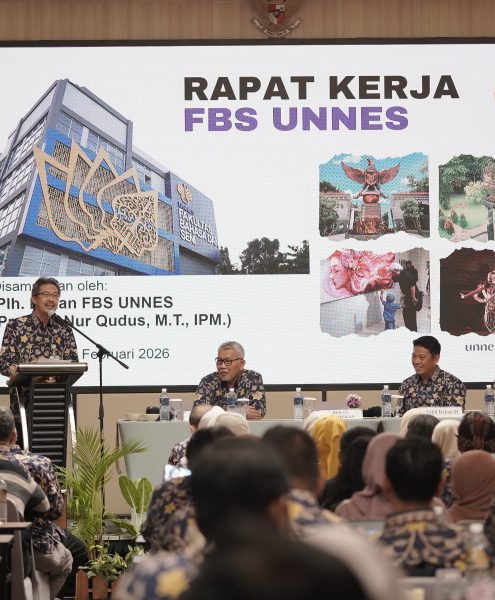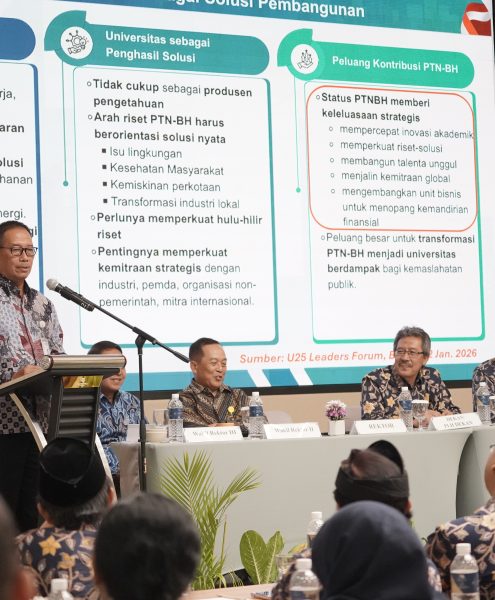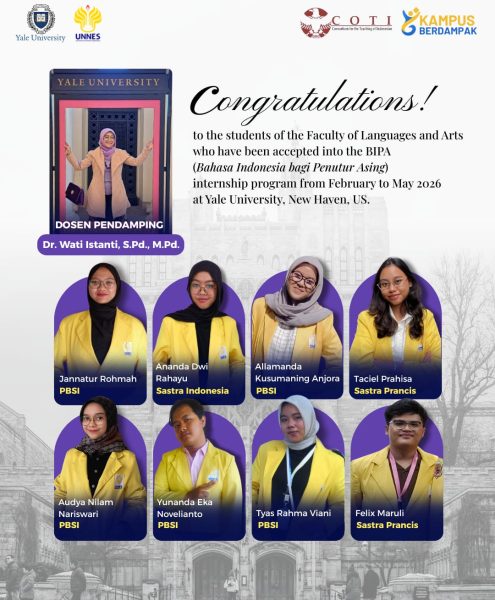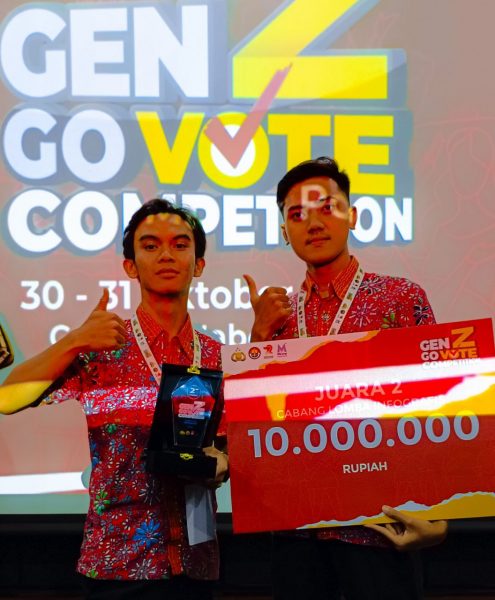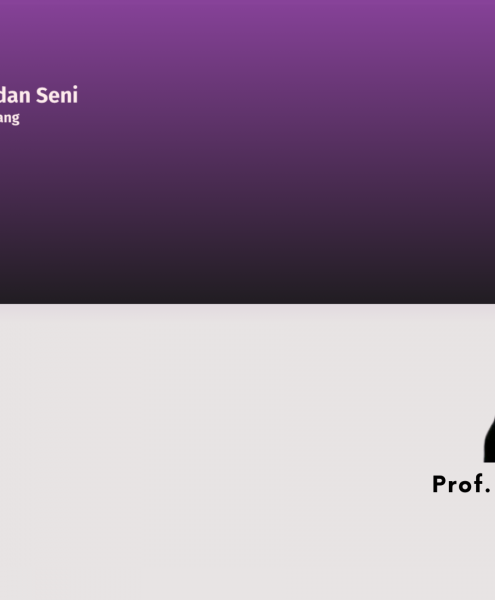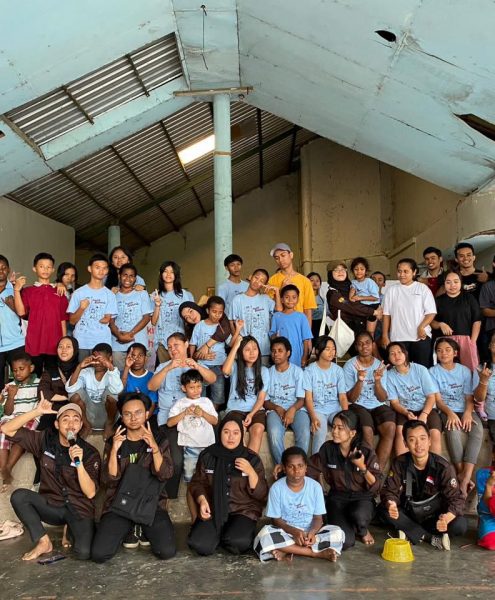In the ever-growing digital era, students must face new challenges that encourage the need to increase digital literacy. Digital literacy is not just an additional skill but an essential foundation for academic success and preparation for an increasingly dynamic and connected world of work.
Nowadays, amid rapid technological advances, students often face the complexity of the ever-growing digital world. Therefore, increasing digital literacy is about mastering hardware and software and a deep understanding of ethics, digital security, and critical skills in assessing information. Thus, as scholars, students must be able to identify misinformation, protect privacy, and understand the impact of digital activities. Digital literacy is the key to being an innovative, responsible and effective cyberspace user.
This argument emerged in the webinar “Digital Literacy Through Language, Literature, and Culture” organized by the Javanese Literature Study Program, Faculty of Language and Arts, Semarang State University (Unnes), Thursday (16/11). This webinar presented speakers Dr Ankita Chakraborty, lecturer at Chitkara University Punjab India, and Siti Hadiati Nugraini, PhD, lecturer at Dian Nuswantoro University, Semarang.
In her presentation, Ankita also gave an example of digital literacy in India. According to him, digital literacy opens eyes to the world. However, the opposite can happen if the sophistication of information technology is not balanced with the ability to digest information. Amid a “flood of information”, people can get lost and be confused about determining direction because specific interests quickly lead them.
According to Siti Hadiati, the condition of digital literacy in Indonesia and India is almost the same. Siti Hadiati showed the importance of digital literacy for students to improve their studies’ progress. Siti Hadiati conveyed using applications that could make things easier for students, such as selecting articles from journals and using a reference manager.
The Javanese Literature Study Program coordinator, Dr Prembayun Miji Lestari, stated that his party facilitates lecturers and students to increase their academic capacity because that is an inherent obligation as a scholar. The party is committed to equipping students with strong digital literacy skills through various initiatives, such as workshops, seminars, hybrid learning programs, or a mixture of offline and online.
Committee Chair Dr Yusro Edy Nugroho said that digital literacy skills will be a significant added value when stepping into the professional world. Many companies are looking for individuals who are proficient in their field, can adapt quickly to technological changes, and have high digital intelligence.(Dhoni Zustiyantoro/Winarsih/*)

